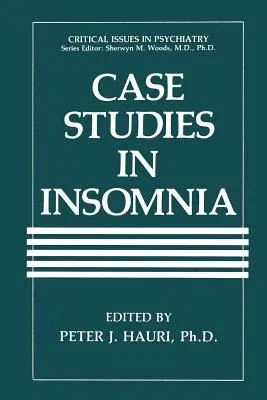Case Studies in Insomnia (Softcover Reprint of the Original 1st 1991)Paperback - Softcover Reprint of the Original 1st 1991, 31 May 2013

Qty
1
Turbo
Ships in 2 - 3 days
In Stock
Free Delivery
Cash on Delivery
15 Days
Free Returns
Secure Checkout
Part of Series
Critical Issues in Psychiatry
Print Length
254 pages
Language
English
Publisher
Springer
Date Published
31 May 2013
ISBN-10
1475795882
ISBN-13
9781475795882
Description
Product Details
Book Edition:
Softcover Reprint of the Original 1st 1991
Book Format:
Paperback
Country of Origin:
NL
Date Published:
31 May 2013
Dimensions:
23.39 x
15.6 x
1.45 cm
Genre:
Mentally Challenged
ISBN-10:
1475795882
ISBN-13:
9781475795882
Language:
English
Location:
New York, NY
Pages:
254
Publisher:
Weight:
385.55 gm

